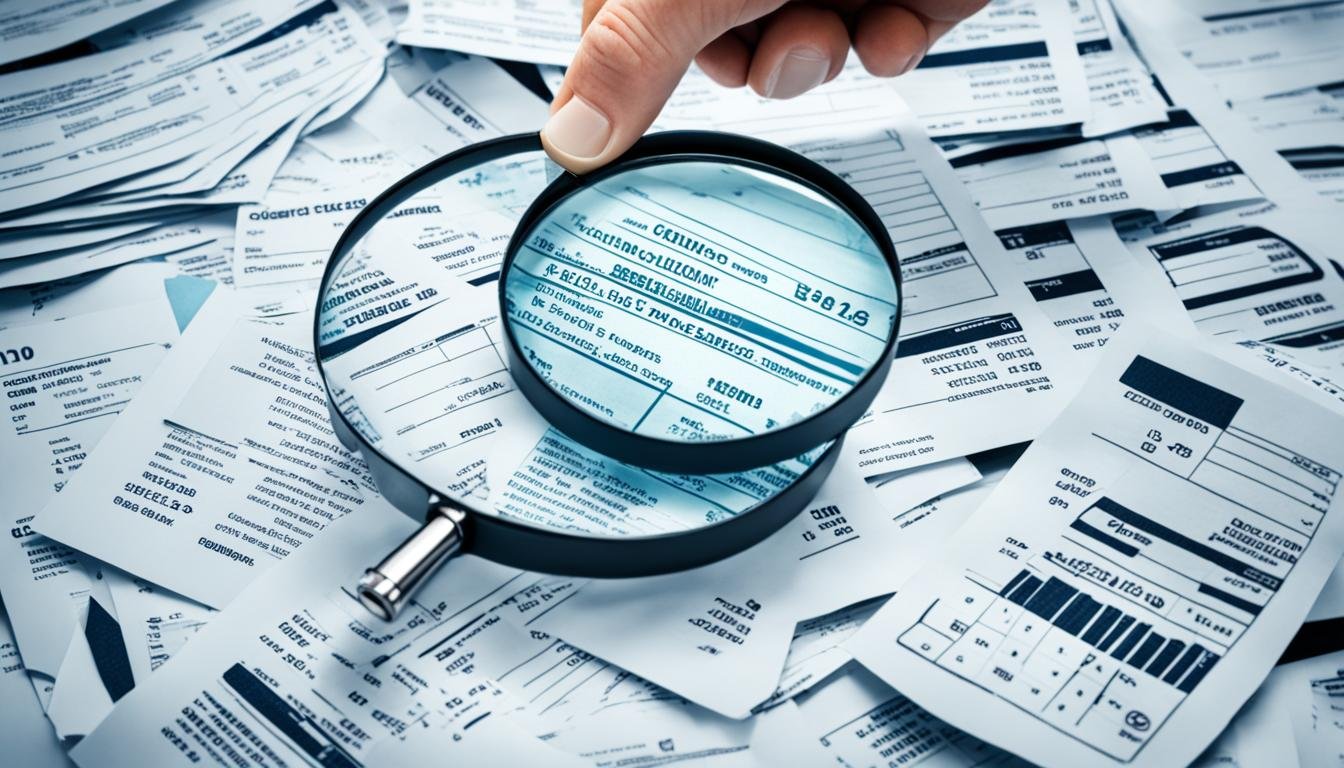

Understanding tax deductions is key in today’s market. It helps small businesses stay financially healthy. By finding ways to lower your taxable income, you keep more money to grow your business. This article offers tips and steps for better managing your taxes. You’ll learn how to make the most out of your business expenses.
Table of Contents
ToggleKey Takeaways
- Understanding small business tax deductions can lead to financial advantages.
- Effective record-keeping is essential for maximizing deductions.
- Identifying common tax write-offs is a key strategy.
- Planning around deductions can significantly reduce taxable income.
- Explore available tax credits to further boost your finances.
Understanding Small Business Tax Deductions
Small business tax deductions are key for entrepreneurs to reduce their taxable income. By using these tax write-offs, owners can lower their tax bill, saving money during tax season. It’s important for business owners to know how these deductions work to make smart financial decisions.
Common deductible expenses include a range of operational costs, such as:
- Salaries and wages paid to employees
- Rent for business premises
- Utilities such as electricity and water
- Office supplies and equipment
- Marketing and advertising expenses
- Interest on business loans
Maximizing deductions for small businesses means knowing IRS rules on what counts as a deduction. Personal expenses or certain fines cannot be deducted. Keeping track of all business-related expenses helps owners take advantage of every deduction.
Learning how to track expenses and understand small business tax deductions is crucial. Knowing what expenses are eligible helps owners plan better financially. This means less stress come tax time.
| Deductible Expense | Potential Savings |
|---|---|
| Salaries and wages | Varies by payroll |
| Rent payments | Depends on lease agreement |
| Utilities | Typically 100% deductible |
| Office supplies | 100% deductible |
| Advertising costs | 100% deductible |
| Interest on loans | 100% deductible if valid |
The Importance of Keeping Accurate Records
Keeping accurate records is key for small business tax benefits. By keeping financial documents in order, owners can lower taxable income through expenses. They can use digital tools or software to help.
Save all receipts, invoices, and bank statements. They prove your tax deductions. With these, businesses can spot deductions they might miss. This helps understand spending, see cash flow patterns, and find tax saving chances.
“Good record-keeping is the backbone of successful tax planning.”
Organized documents make tax season easier. Keeping records updated helps in filing taxes and maximizing deductions. Being consistent with documentation helps businesses stay financially stable and grow. For more tips, check out keeping accurate records for deductions.
How to Maximize Deductions for Small Businesses
Learning to maximize deductions is key for small businesses to cut taxes. It’s important for owners to know common tax write-offs. This way, they can save more money.
Identifying Common Tax Write-Offs
Many tax write-offs can reduce small businesses’ taxes. Knowing these deductions helps create a strong tax plan. Important deductions include:
- Travel Expenses: Costs from business trips, like flights, hotels, and meals.
- Home Office Deductions: Costs for using part of your home for work.
- Vehicle Expenses: Business-related car costs, by standard mileage or actual expenses.
- Marketing and Advertising: Money spent on promoting your business online or with print materials.
- Professional Fees: Payments to accountants and lawyers that help your business.
Tracking Eligible Expenses
To maximize deductions, you must track expenses well. Using software or apps for receipts can help. Staying organized makes managing finances easier. Here’s how:
- Budgeting Software: QuickBooks or FreshBooks sort expenses well.
- Mobile Apps: Apps like Expensify make scanning receipts easy.
- Spreadsheets: A good spreadsheet keeps expenses in order.
Using these tools, owners can catch every deduction. For more tips on deductions and tax help, check out this guide.

Maximizing Business Expenses
Small businesses stand in a special spot with their finances. A top way to handle expenses is by tracking and improving how you spend. Checking your expenses often can show where you can save money. Look closely at costs like subscription services or recurring fees that aren’t always clear.
When you spend money is key to your financial health. Buying big items at the fiscal year’s end can cut your taxable income. This move lets you get benefits from accelerated depreciation, helping your business in future years.
Knowing what counts as a tax deduction can make your business more tax-efficient. Work with a skilled accountant to find all deductions you can claim. Aim to lower your taxable income as much as possible, keeping your business financially solid.
- Review expenses regularly to identify savings.
- Consider timing for larger expenses.
- Utilize accelerated depreciation benefits.
- Collaborate with professionals for optimized deductions.
Using these approaches, small businesses can make the most of their expenses. This leads to greater financial stability.
Legal Tax Deductions for Small Businesses
Understanding tax deductions is key for small businesses. It helps improve their financial health. Learning what the IRS allows as deductions ensures businesses follow the law and save money.
Understanding What Qualifies as a Deduction
Deductions vary and include many business expenses. Here are some things that often qualify:
- Business losses
- Inventory management costs
- Marketing and advertising costs
- Business-related travel expenses
Categorizing expenses correctly can help businesses save more. For instance, marketing expenses are deductible if they’re for business operations.
Knowing IRS rules is vital for business owners. For more details on what you can deduct, check out this guide.
For tax savings, track all possible deductions. Since rules change, it’s important to stay up-to-date and review claims often.
Small Business Tax Planning Strategies
Effective tax planning is key for a small business’s financial success. A proactive approach helps owners deal with tax liabilities. They can do this by understanding tax rules and shaping their business to get benefits.
Reducing small business taxable income is crucial. For example, retiring plan contributions benefit both employees and business owners. These contributions are deductible and help optimize tax situations.
- Incorporating the business: Leads to more tax treatment options.
- Tax-loss harvesting: Using losses to offset gains reduces tax bills.
- Adjusting the organizational structure: Choices in business structure impact taxes.
- Utilizing tax credits: Look for credits for specific business activities.
Small business owners should always be planning for taxes. Regularly checking operations and tax-saving options is key to long-term success.

| Strategy | Benefits |
|---|---|
| Incorporation | Provides liability protection and potential tax advantages. |
| Retirement Contributions | Lowers taxable income while preparing for the future. |
| Tax-Loss Harvesting | Offsets capital gains to reduce tax bills. |
| Organizational Structure Review | Ensures the business is set up for tax efficiency. |
| Utilization of Tax Credits | Finds applicable credits to maximize tax savings. |
Small Business Tax Credits and Incentives
Small businesses can tap into various tax credits and incentives. These are meant to boost growth and encourage investing. Federal and state programs offer many options. Looking into these credits can bring big financial benefits.
Exploring Available Credits
There are many tax credits and incentives for small businesses. These can lower how much tax a business owes. Here are key types:
- Employee Hiring Credits: States give tax breaks for hiring certain people like veterans or the long-term jobless. This helps lower payroll taxes.
- Renewable Energy Incentives: Businesses going green with things like solar panels get big tax credits. These rewards encourage eco-friendly investments and save money.
- Retirement Plan Contributions: Putting money into worker retirement plans can yield tax credits. This boosts staff loyalty and helps with your taxes.
- Research and Development (R&D) Credits: Companies innovating or creating new things can get R&D credits. This lowers development costs and taxes.
Knowing which deductions to take can make a big difference. The right strategy can lead to big tax savings. This helps your business grow.
| Credit Type | Description | Potential Savings |
|---|---|---|
| Employee Hiring | Incentives for hiring from specific groups | Up to $9,600 per hire |
| Renewable Energy | Tax credits for green investments | 30% of installation costs |
| Retirement Plans | Credits for employee retirement contributions | $1,000 per plan participant annually |
| R&D Credits | Incentives for innovation and development | Up to 20% of eligible expenses |
Achieving Small Business Tax Efficiency
To be tax-efficient, small businesses need to check their tax strategies often. Keeping up with tax law changes is also vital. Doing so can greatly improve your financial well-being. Knowing the best tax strategies is key to long-term success.
Using tax-efficient investment strategies can really help. For example, tax-deferred accounts mean you keep more profits. This increases the cash available for running your business. Also, giving to charity can benefit society and lower your taxes.
Good tax planning helps your business grow sustainably. Business owners should use tactics that suit their financial situation best. And they should always look for ways to legally minimize taxes through business expenses.
| Strategy | Description | Benefits |
|---|---|---|
| Regular Tax Review | Evaluate tax strategies and performance regularly. | Identifies new opportunities and optimizes current benefits. |
| Tax-Deferred Accounts | Invest profits into tax-deferred accounts. | Improves cash flow and reduces current tax burden. |
| Charitable Contributions | Donate to approved organizations to lower taxable income. | Supports community and provides tax deductions. |
Conclusion
Maximizing deductions is key for small businesses to improve their financial health. We’ve talked about the need to know tax laws well and keep accurate records. These steps are important for better tax results for your business.
Knowing what tax write-offs to look for and keeping track of expenses can save a lot of money. Also, spending money wisely in your business helps with tax savings. This approach makes managing business taxes more effective.
Talking to tax professionals can offer customized advice. They keep you updated on new tax laws and saving chances. Being ahead in your tax game helps keep your business strong and growing.
FAQ
What are small business tax deductions?
Small business tax deductions lower your taxable income. They include operating costs and other expenses needed to run your business. This can help reduce the taxes you owe each year.
How can I maximize deductions for my small business?
Maximize deductions by recording all business expenses carefully. Know what counts as a deduction. Track expenses like travel and home office use closely.
Using tax planning strategies and keeping detailed financial records helps lower your taxable income.
What types of expenses can be considered tax write-offs for small businesses?
Tax write-offs can include supply costs, advertising, and professional fees. Expenses for travel, home offices, and buying equipment also count. Knowing these can help you leverage more deductions.
Why is keeping accurate records important for tax deductions?
Accurate records support your deductions at tax time and during audits. They help catch any deductions you might miss. Proper documentation keeps you in line with IRS rules. This maximizes your tax benefits.
What are some small business tax planning strategies?
Planning strategies involve structuring for tax efficiency and making the most of retirement contributions. Use tax-loss harvesting. Regularly update your tax approaches to fit new laws.
Are there legal tax deductions specifically for small businesses?
Yes, small businesses have specific deductions. They can deduct business losses and costs for inventory, marketing, and travel. Knowing IRS rules is key to optimizing these deductions.
How can small businesses benefit from tax credits and incentives?
Tax credits and incentives greatly reduce tax bills. They include credits for new hires, green investments, and retirement plan contributions. Leveraging these can greatly aid your business’s finances.
What does small business tax optimization involve?
Tax optimization means strategically managing finances to cut tax liability. It includes staying updated on tax laws and spending wisely to support growth.

As a trusted news source, Editorial Fox prides itself on upholding the highest standards of journalistic integrity. Our commitment to accuracy and fairness ensures that our readers can rely on us for reliable information.
Mail: info@editorialfox.com
About Editorial Fox
At Editorial Fox, we are committed to delivering high-quality journalism that informs and engages our readers. Our team of experienced journalists and editors work tirelessly to bring you the latest news and analysis from around the world.
Copyright @2024 Editorialfox.com All Right Reserve.


Be the first to leave a comment